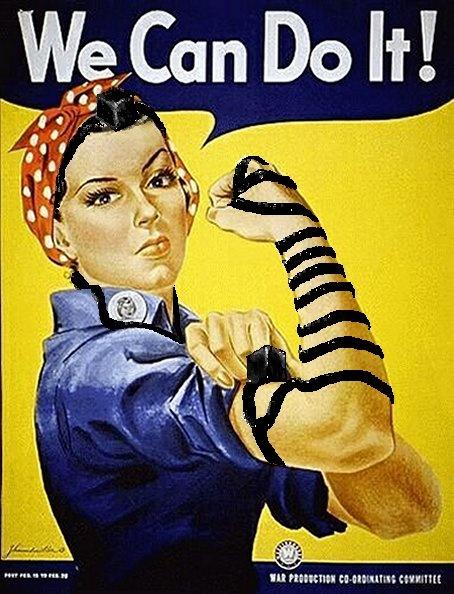So I’m taking a break from my beloved critical analysis to
have a casual chat, albeit a one sided, open ended chat typed into structured
paragraphs.
I’ve had quite a few requests for my opinion on Jewish feminism,
sexism in Judaism and even a feminist perspective on the Israeli-Palestinian
conflict (??). The problem is: I don’t actually have an opinion on these issues.
Shocking I know. Rather I have a jumble of vaguely coherent, mildly
disconnected thoughts that come to mind when considering feminism and Judaism,
which will hopefully be suitable content for this Shabbat.
First up, I’m a non-religious Reform Jew, and I feel like
this has strongly affected the way I view- or rather don’t view – feminist issues
in Judaism. Reform AKA Progressive Judaism is often described as an Americanised
stream of Jewish religious practise with a strong aim to modernise the potentially
harmful archaic traditions of Orthodox Judaism, especially gender inequality. My
synagogue has a female rabbi and I read from the Torah on my Bat Mitzvah, which
is often forbidden to women in traditional/Orthodox communities. I’ve also
never had a personal issue with the gendered religious roles of men and women, such
as only men wearing certain garments or saying certain prayers. I think this is
because when I was little, I asked why only men wear and say certain things,
and I was told that it’s because women are already close to God, but boys need
extra help so they wear special clothes and say special prayers. I was told
that I could do it with them if I wanted, but it wasn’t really necessary. And although
I now know these traditions exist because they are based off the inherently
sexist practises of ancient civilisations, that sentiment of equality I first learnt
has embedded itself in my subconscious, and affected the way I view Jewish
gender inequality.
Basically what I’m slowly getting at in a meandering, anecdotal
kind of way is that my experiences of Judaism have been – at least on surface
level – ones of equal opportunity and open-mindedness. And even if there are
underlying sexist tropes in these experiences, as I’m sure there are, I am so
disinterested and uninvolved in religious Judaism that it does not affect me in
any noticeable way. I mean seriously, literally the only reason I grudgingly
agreed to have a Bat Mitzvah was because I had a crush on a boy in my religious
studies class.
That said I will concede that there have been instances where
I’ve been uncomfortable as a woman in Judaism. Most notably was when I was in Israel,
where Reform Judaism goes largely unrecognised, and most religious sites are
segregated. Being accustomed to freely walking around sacred areas, the
*uneven* segregation did not sit well with me at all.
But the thing is, I don’t see this as “the toxic patriarchy”,
which I usually love to slow-roast. I don’t see segregation and head-coverings
as symbols of oppression, and I don’t see even Orthodox Judaism as in dire need
of a feminist makeover. Religion is far more complex than we give it credit
for and deeply woven into the identities of so many individual human beings
that I can’t bear to criticise or propose changes to a culture I hardly
identify with on a religious level. When I watch, read, or listen to Orthodox women
speak about feminism in their Judaism, I just smile, nod and trust that they
understand their lives and feminist needs in a way I never will. As far as I can
see, their empowerment will never hinder mine, and I honestly have no idea who
out of the two of us has a better idea of what’s good for the women we
influence. In an extremely un-Hannahesque way, when it comes to Jewish
feminism, I don’t even try to understand. When being segregated makes me
uncomfortable, all I can think of is “somewhere there is a yeshiva full of
empowered feminist Jewish women who fully support segregation, and it’s not my
place to say they’re wrong”.
There is a limit to this kind of attitude, as I think
religion should be heavily criticised for things like blatant homophobia and
transphobia, or concealing sexual abuse claims. However the nuances of feminism
in an orthodox religious sphere are so out of my experience and knowledge that
making statements on it seems a little naïve.
…this post got deep…
Shabbat Shalom,
Hannah

Without starting any racism, I would like to ask whether you believe that this same theory would apply to Islam, considering the wider condemnation it has received from feminism in the public media, but also the fact that there are many Muslim feminists who strongly believe in their own religion? Do you think there is a line to be drawn, for example between the hijab and the burka, or whether since outsiders cannot fully understand the experience of being Muslim, they should not criticise it, regardless of feminist issues?
ReplyDeleteMmm yeah tricky waters...
DeleteI find that if you actually listen to muslim women, they differentiate between issues that Western media tends to lump into one. For example, muslim feminists usually condemn restrictions on female participation in education, politics, and general society, as this is oppression from a government which interprets Islam through a patriarchal lense. But they support the hijab/niqab/burqa, as they are important symbols of their religion. Meanwhile in Oz the media portrays religious garments as one and the same with "Islam's inherent oppression of women"...
Usually the best thing to do is just to listen to the women of that religion/culture, because they can identify problems with cultural sensitivity which Fox News just cant.